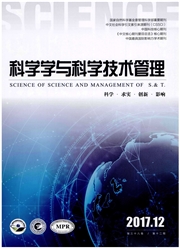

 中文摘要:
中文摘要:
研究以2008—2013年我国民营企业为样本构建Heckman两阶段模型,探讨了战略变革在困境下顺势而发的情形。研究发现,财务困境下民营企业会加强战略变革的实施,但行业内困境的民营企业总体战略变革程度反而小。进一步研究发现,企业决策管理权与决策控制权的分离程度越低,困境下战略变革程度越小;民营企业依靠纳税与政府建立的政企关系也会降低战略变革实施程度。研究表明:发展困境下的战略变革并非顺理成章,战略变革在发展困境下也存在实施阻碍,决策机制是困境下战略变革实施的重要制约机制。
 英文摘要:
英文摘要:
In this paper, we took the private enterprises in our country from 2008 to 2013 as samples, using Heckman two stage models and discuss the strategic change in development difficulties. The study found that pri- vate enterprises will strengthen the implementation of the strategic change while in financial distress, but the one's performance in the middle and lower in industry the strategic change was slightly. The further study found that the lower the degree of decision management and decision control, the smaller the degree of strategic change un- der distress; the relationship between government and enterprises set up by tax also reduces the implementation of the strategic change. This study shows that, strategic change is not a matter of course under development dilem- ma, whether to implement strategic change in development difficulties have hampered, and decision mechanism pro- vides a path plays an important part on relation between dilemma and strategic change
 同期刊论文项目
同期刊论文项目
 同项目期刊论文
同项目期刊论文
 期刊信息
期刊信息
